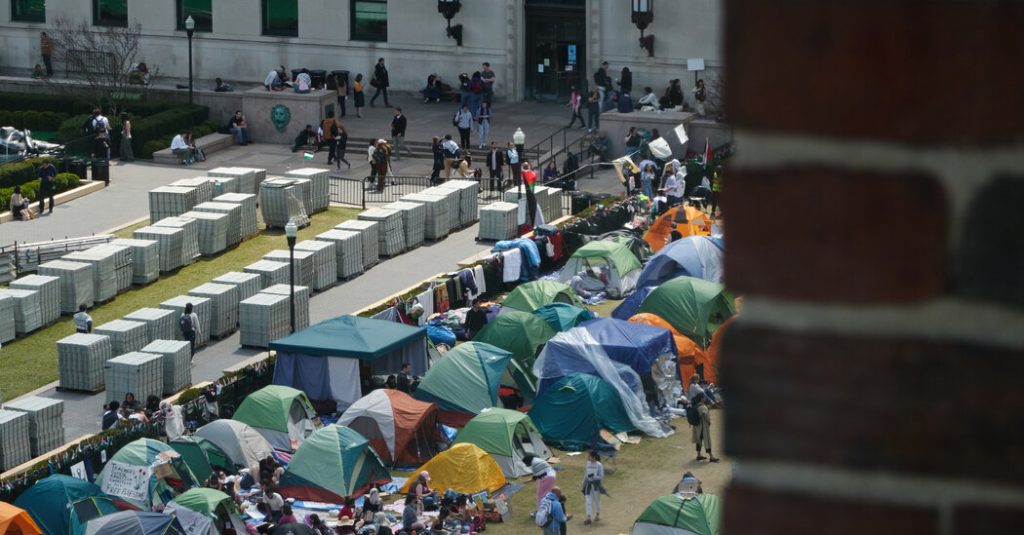Columbia University’s senate is hesitant to proceed with a censure vote against President Nemat Shafik, fearing the potential repercussions of her removal during a time of crisis. Instead, they plan to vote on a watered-down resolution expressing displeasure with some of her recent decisions, including calling the police to arrest protesting students on campus. Some senators are concerned that a censure vote could be perceived as giving in to pressure from Republican lawmakers who have called for Dr. Shafik’s resignation. The meeting of the university senate on Friday will determine the outcome of the resolution.
During a recent senate meeting, Dr. Shafik faced criticism from faculty members for her handling of a congressional hearing on campus antisemitism, where she appeared to agree with demands made by Congress members. Additionally, her decision to involve the police in breaking up a student protest encampment raised concerns about the resulting arrest and suspension of more than 100 students. Some senators were upset by Dr. Shafik’s performance at the meeting, feeling that she had not adequately addressed their concerns and had taken actions that contradicted the senate’s recommendations.
Dr. Shafik defended her decision to call in the police, citing safety hazards and sanitation concerns at the student encampment. However, some senators pointed out that they had not been invited to visit the site, and they questioned the effectiveness of the police intervention, which led to a new protest camp being set up shortly afterward. The administration’s decision to involve law enforcement went against the advice of the senate’s executive committee, leading to further discontent among faculty members and threats of censure against Dr. Shafik by the American Association of University Professors.
The senate has been working to defuse tensions between the administration and faculty members ahead of the upcoming vote on the resolution. Dr. Shafik expressed a desire to restore trust between the two groups, acknowledging that it had eroded even before her appointment as president. She emphasized her commitment to free speech and academic freedom, while also recognizing the need to address instances where free speech crosses into harassment. The senate members are currently in the process of revising the resolution to express disapproval of Dr. Shafik’s actions without resorting to a full censure vote.
The situation at Columbia reflects a broader concern among faculty and administrators about outside interference in the university’s governance procedures. The visit by Republican speaker of the House Mike Johnson was seen as a unique instance of political intrusion, further complicating the already tense relationship between the administration and the faculty. Some members of the senate express deep discomfort with both the actions of Dr. Shafik and the attempts by politicians to influence university decisions. The resolution to be voted on Friday will address these issues while stopping short of a complete censure of the president.
As the university senate prepares for its final meeting of the year, the focus remains on finding a resolution that addresses the concerns raised by faculty members without escalating into a full censure vote against President Nemat Shafik. The ongoing tensions between the administration and the senate underscore the delicate balance of power and decision-making processes within the university. The outcome of the vote on Friday will reveal how the senate chooses to navigate these challenges and whether trust can be restored between the various stakeholders at Columbia University.


